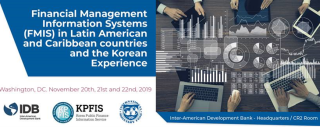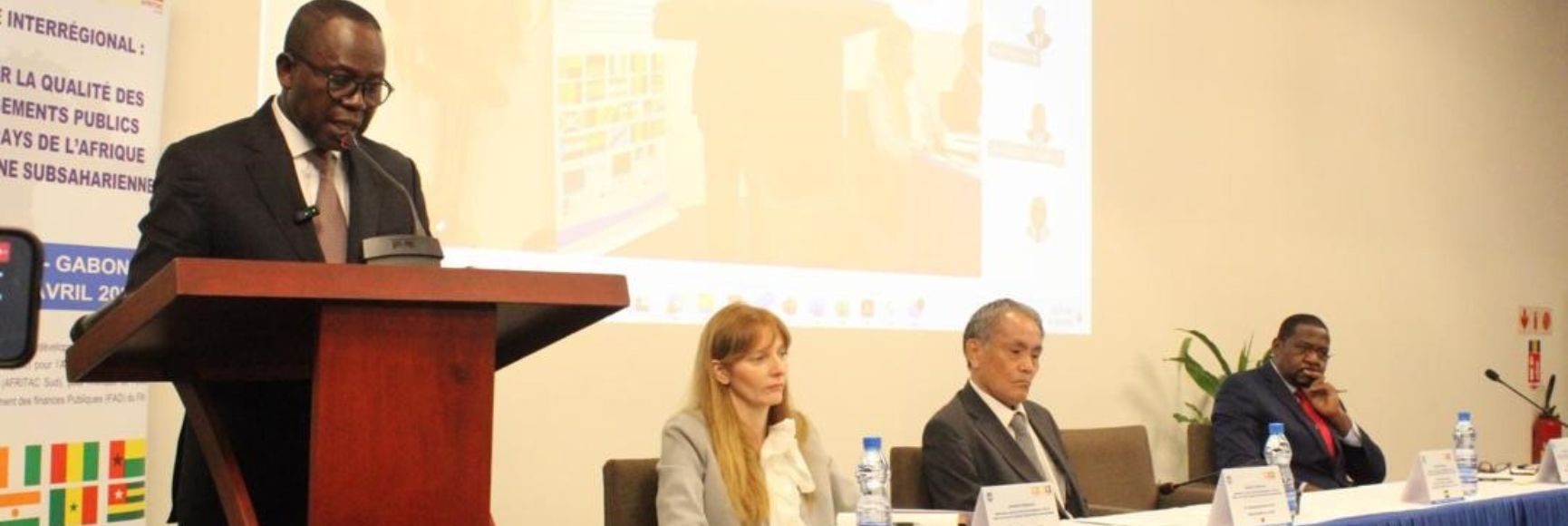
Posted by Carlos Pimenta and Gerardo Uña[1]
The Inter-American Development Bank (IDB) and the IMF’s Fiscal Affairs Department organized a recent three-day conference on Financial Management Information Systems (FMIS).[2] The conference discussed how new digital technologies can be harnessed to improve the efficiency, effectiveness, integrity and transparency of public financial management (PFM).
Over the last two decades the number of FMIS in operation in Latin America and the Caribbean has increased, helping to improve the transparency and efficiency on PFM systems. However, as mentioned in a recent IDB publication “Technological Opportunities and Recommendations for the Modernization of FMIS” lack of financial, technological and human resources, among other institutional issues, have prevented some FMIS from benefiting fully from advances in digital technology.
The main topics discussed during the conference included strategies for modernizing FMIS to improve the transparency and accountability of the systems, the challenges faced by countries in implementing these strategies, the use of cloud computing services in the public sector, and cybersecurity issues. Vendor representatives from Free Balance, Oracle, El Corte Ingles, everis, and Amazon Web Services also presented a private sector perspective on FMIS’ future opportunities and challenges in the region.
The debates during the conference were complemented by presentations on the experiences of the Korean Ministry of Finance and the Spanish Ministry of Finance related to their FMIS, as well as the US Treasury Department’s experience of developing and operating its fiscal transparency portal (https://www.usaspending.gov/#/). All the event´s materials (agenda and presentations) are available at https://events.iadb.org/calendar/event/21144?lang=en.
Participants agreed that:
- Better integration of budgeting, procurement and public investment processes through FMIS and related information systems is a priority to enhance the efficiency and accountability of public expenditure.
- Improving fiscal transparency portals is another top priority for many countries. These portals should enhance the usability of financial information for citizens and other users.
- Replacing an existing FMIS with an entirely new system is not always the best strategy, as is detailed in a recent FAD’s publication “How to design an FMIS: A modular approach”.
- Defining a common set of functional and technological standards and principles for PFM information systems is an initiative that could support the future development of FMIS, using a modular approach.
- Finance ministries need to be reorganized to better manage FMIS and other information systems. Practices diverge across the region, and more thought should be given to the optimal arrangement. Some Latin American countries have established IT Directorates within their finance ministry, but in others the information systems are managed by small units generally financed by donors.
- Digital innovations such as Machine Learning/Artificial Intelligence, Big Data, cybersecurity and cloud computing, and their implications for the design of FMIS, are emerging topics where good practice norms still need to be developed.
Latin America is at a crossroads. There is an opportunity for countries to take advantage of technological changes in improving their information systems, but also a danger that such opportunities may be missed in a complex and rapidly changing world. Collaborative discussions of the kind that took place during the IDB/FAD conference can help promote better understanding of these issues and establish a basis for better informed decision making.
[1] Carlos Pimenta is a Principal Specialist in the IDB’s Fiscal Management Division; and Gerardo Uña is a Senior Economist in the IMF’s Fiscal Affairs Department.
[2] The event took place at IDB Headquarters during November 20-22, 2019, with support from the Korean Public Finance Information Service (KPFIS). Participants were the FMIS’ directors from 24 Latin American and Caribbean countries, and staff from the IDB, KPFIS, and the IMF.
The posts on the IMF PFM Blog should not be reported as representing the views of the IMF. The views expressed are those of the authors and do not necessarily represent those of the IMF or IMF policy.





